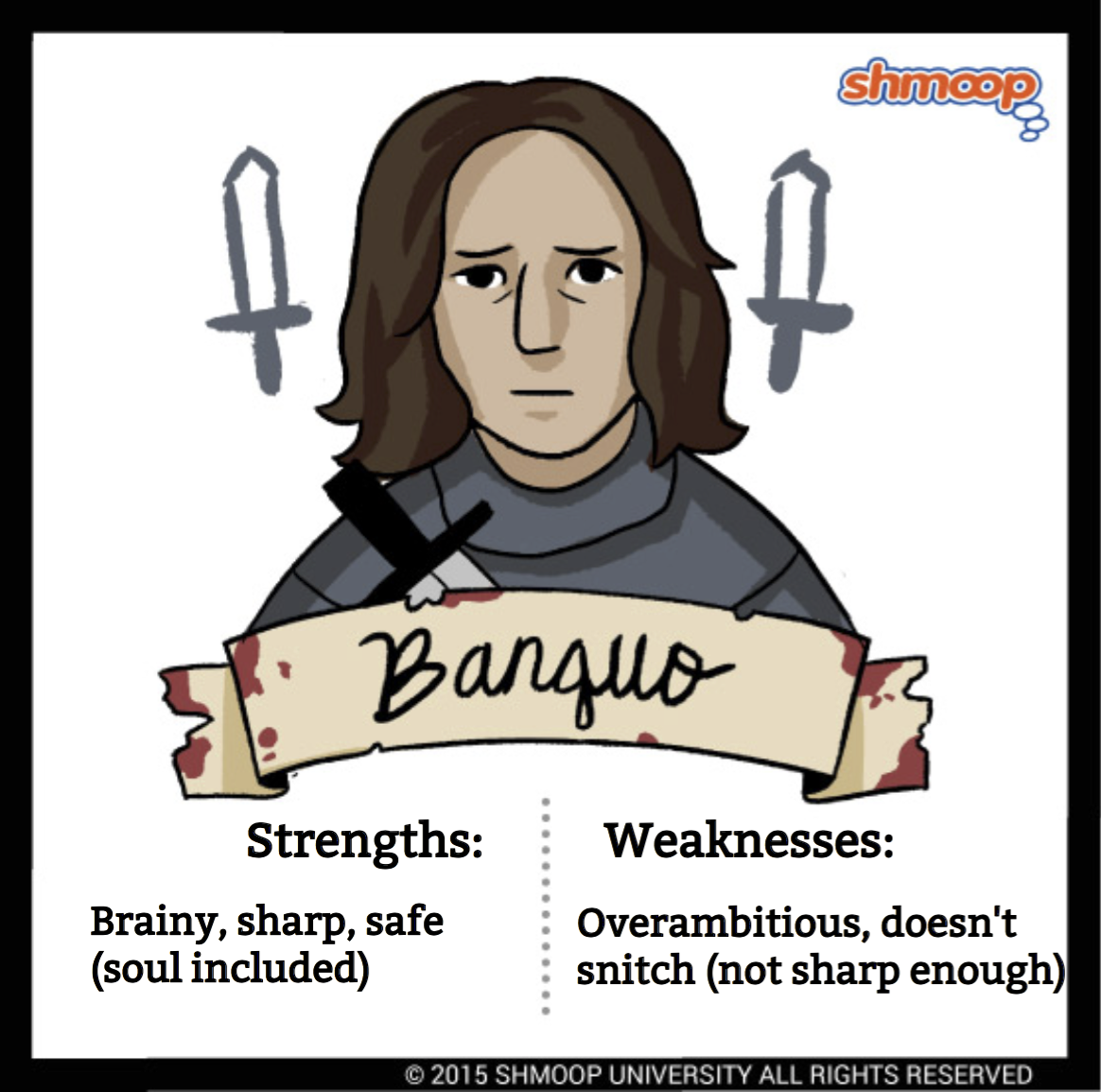Character Analysis

(Click the character infographic to download.)
Like Macbeth, Banquo was a general in King Duncan's army. Unlike Macbeth, Banquo never committed regicide. But are these the only differences between them?
Macbeth thinks a lot of his friend. (Well, maybe frenemy.) When he's contemplating whether or not to kill him, he says:
'tis much he
dares;
And, to that dauntless temper of his mind,
He hath a wisdom that doth guide his valour
To act in safety. There is none but he
Whose being I do fear: and, under him,
My Genius is rebuked; (3.1.55-61)
In other words, Macbeth admires Banquo's bravery—and fears his wisdom. He's not just the muscle of the operation. In fact, he's wise enough to know that something shady is going on. After Duncan's murder, he's the one to tell the nobles to "meet,/ And question this most bloody piece of work" (2.3.149-150); and he's the first one to suspect that Macbeth has played'st most foully" for the crown (3.1.3).
Ask No Questions
Banquo's natural suspicion protects him. Okay, it doesn't exactly protect him—he still dies—but he doesn't die damned, like Macbeth. His soul is safe. When he and Macbeth encounter the witches, Macbeth is just like, "durr hurr, talk to me," but Banquo wants to know more:
What are these
So wither'd and so wild in their attire,
That look not like the inhabitants o' the earth,
And yet are on't? Live you? or are you aught
That man may question? You seem to understand me,
By each at once her chappy finger laying
Upon her skinny lips: you should be women,
And yet your beards forbid me to interpret
That you are so. (1.3.40-49)
Sure, Macbeth asks, "What are you?," but Banquo is the one who says, "Um, dude, maybe they're tricking you." (Well, actually, he says, "oftentimes, to win us to our harm,/ The instruments of darkness tell us truths,/ Win us with honest trifles, to betray's" [1.3.135-137], but we thought you might appreciate the short version.)
These questions tell us that Banquo is cautious. Macbeth may dive right into evil without even stopping to pee first, but Banquo takes his time. Even when he wants to know his future, he does it cautiously, saying that he "neither beg[s] nor fear[s]/ Your favors nor your hate" (1.3.63-64).
Fatal Flaw
If Banquo is so cautious and suspicious, then why does he end up dead? Like Macbeth, he may have just a touch of the old ambition. Right before he gets brutally murdered, he has a little imaginary conversation with Macbeth:
Thou hast it now: king, Cawdor, Glamis, all,
As the Weird Women promised, and, I fear,
Thou played'st most foully for't: Yet it was said
It should not stand in thy posterity,
But that myself should be the root and father
Of many kings. If there come truth from them
(As upon thee, Macbeth, their speeches shine)
Why, by the verities on thee made good,
May they not be my oracles as well,
And set me up in hope? But hush, no more. (3.1.1-10)
Banquo tells himself to hush, but it's too late: there's a part of him that wants to be the "root and father/ Of many kings." Is that hope what keeps him from snitching on Macbeth? Or did he just not get the chance?
Banquo's Timeline